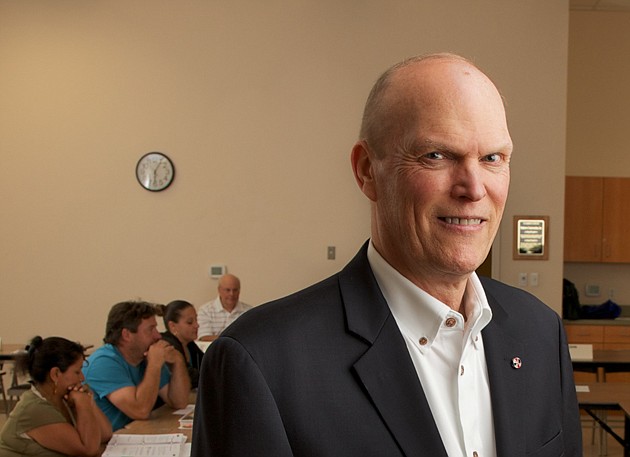- November 24, 2024
-
-
Loading

Loading

Goodwill Industries of Southwest Florida isn't a bank, but it'll come close early next year.
Elliott Rittenhouse, Goodwill's director of microenterprise, is developing a program in conjunction with area banks to provide startup loans of about $2,000 to small-business entrepreneurs who live in Charlotte, Collier, Glades, Hendry or Lee counties.
These borrowers usually can't get conventional financing because their credit scores are below what a bank would consider acceptable for a loan. “Our target market are unemployed or financially disadvantaged folks,” Rittenhouse says.
Instead, the ability to repay will be based on a solid business plan and what Elliott calls “character lending,” the way bankers used to lend to people they knew. “We're the only people in this whole area who will be doing it,” Rittenhouse says.
Rittenhouse heads the Microenterprise Institute of Goodwill, an organization that teaches business skills to budding entrepreneurs. So far, 111 people have graduated from the organization's six-week program.
“In 2010, we started looking for ways to bank our graduates,” Rittenhouse explains. Initially, Rittenhouse turned to Lee County, which provided him with a $15,000 one-time grant to help entrepreneurs launch their businesses. But that money has been spent, and Rittenhouse says he started looking for a more permanent financing solution.
So Rittenhouse solicited grants from area banks to fund a microloan collateral guarantee pool. The benefit for banks is that their grants can be counted for credits toward the Community Reinvestment Act, which encourages lenders to invest in low- to moderate-income borrowers.
“In the past, the bigger banks didn't want to be bothered by microloans,” Rittenhouse says. That's because it takes as much work for a lender to underwrite a $2,000 loan as it does for a $1 million loan.
But with the CRA credits and goodwill that the banks can generate from the effort makes the program worthwhile. “I'm sure it will go into their annual report to the Fed,” Rittenhouse says.
So far, three banks are participating: Fifth Third Bank, Florida Community Bank and IberiaBank. Fifth Third provided $25,000, Florida Community gave $10,000 and IberiaBank is contributing $2,500.
Here's how the program will work once it's launched in February. A borrower with a business plan will apply for a startup loan of about $2,000 with a rate of up to 8% for 48 to 60 months. A loan committee comprised of executives from each participating bank with Rittenhouse and Goodwill Vice President of Finance John Doramus will approve or deny the loan. If it's approved, Florida Community Bank will underwrite and fund the loan and the Microenterprise Institute will buy a certificate of deposit at the bank with money from the pool. The CD will serve as 100% collateral for the term of the loan. When the borrower repays the loan, the collateral will return to the pool.
Rittenhouse says he's not aware of another program like this one in Florida, and fashioning the unique program is a challenge. “What we've been doing is to try to work out procedures so that the banks can meet their federal obligations,” he says. “That's been a time-consuming process.”
Rittenhouse says he hopes more banks will participate. Broader community support for the program will make it easier for Rittenhouse to apply for grants from private foundations that support small-business development programs. “To have an effective loan pool, you need $1 million,” he says.